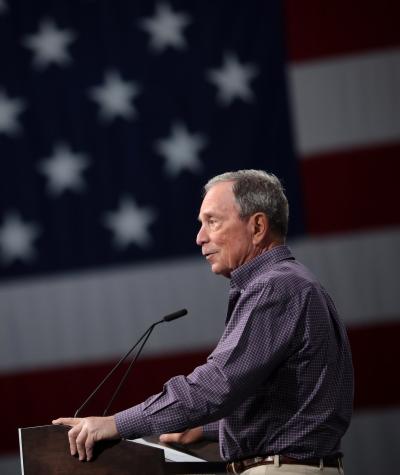Campaign Legal Center (CLC) is asking the Federal Election Commission (FEC) to close a loophole that allows billionaires to funnel millions of dollars to political parties.
Earlier this year, former presidential candidate Michael Bloomberg transferred $18 million to the Democratic National Committee (DNC), which greatly exceeds the $35,500 contribution limit. Bloomberg and the DNC claimed that the $18 million transfer was permissible because the money formally came from Bloomberg’s campaign—which he entirely funded—rather than directly from his personal account.
This was an aggressive and legally dubious move. But the FEC rarely enforces the law, and even when it does, penalties are only assessed years later.
But the FEC has an opportunity to close the loophole now.
The agency is currently considering an Advisory Opinion Request from a former Libertarian presidential candidate, Shaun McCutcheon, who wants to exploit what he calls the “Bloomberg billionaire loophole.” McCutcheon self-funded his presidential candidacy and lost, and now would like the FEC to opine on whether he may transfer the unlimited personal funds that were first deposited into his campaign account to the Libertarian Party.
In contrast with rulemaking petitions and complaints, which can drag on for years, the FEC is required to respond to an Advisory Opinion Request within 60 days. And an FEC Advisory Opinion could have the effect of closing the loophole by signaling that self-funded candidates may not transfer millions in personal funds to a political party.
CLC filed comments on the request urging the FEC to close the “Bloomberg billionaire loophole.” As CLC wrote in its comments:
"Contributions to party committees are capped to limit corruption and its appearance. Candidates may use their personal wealth on their own campaigns because candidates generally cannot corrupt themselves. The latter rationale does not negate the former: An individual’s ability to buy excessive influence is not diminished simply because they became a candidate before giving the party millions in contributions."
The FEC is responsible for administering the laws that govern the U.S. campaign finance system for campaigns for president and Congress. It’s time for the FEC to do its job to protect the voices of all voters, not just wealthy special interests.
